Rob Winningham – Cognitive Rehabilitation & Memory Enhancement
$59.00$199.00 (-70%)
- Interactive Lab: Communicating with patients/ residents as well as family members about memory and dementia issues
Rob Winningham – Cognitive Rehabilitation & Memory Enhancement
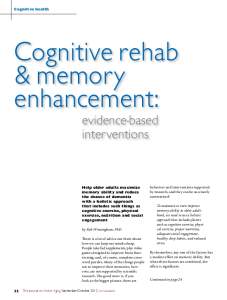
Techniques to Slow, and Even Reverse, Memory Problems
Millions of older adults are suffering from impaired memory and attention. These deficits can affect where people can live, how much support they will need, and their quality of life. Although recent research has found that memory enhancement interventions are effective at preventing further decline and improving memory abilities, these resources are not widely available to professionals who work with older adults or people who have experienced traumatic brain injury. In addition, very recent research has found that physical exercise, nutritional changes, and social support interventions can improve cognitive ability and quality of life. Once again, however, the necessary resources have not always trickled down to the people who can use them.
In this cutting-edge recording, you will learn up-to-date information about memory, aging, and dementia. Learn how to implement evidence-based interventions to slow, or even reverse, memory problems. Gain web access to over 300 cognitive rehabilitation activities and social support interventions for community settings. Most of these activities and interventions are appropriate for people who want to be proactive in preventing memory loss as well as those who have mild cognitive impairment, early stage dementia, or cognitive deficits after a stroke. Learn how to take advantage of preserved cognitive abilities that allow even mid-stage dementia patients to learn new skills. Finally, learn how to motivate their apathetic and unmotivated residents and patients so you can take advantage of these breakthroughs.
- Describe the research findings that support the “Use It or Lose It” theory of memory and aging, and apply these findings to clinical intervention selection
- Explain the neuropsychological foundations of dementia and other conditions that cause memory loss in clients and patients
- Analyze cognitive rehabilitation enhancement programs for people of varying cognitive abilities, and describe how to apply them in a clinical setting
- List three pharmacological treatments for clients and patients with dementia
- Demonstrate effective cognitive rehabilitation activities to reduce symptoms in clients
- Determine ways to motivate depressed, apathetic, and anxious clients to improve treatment outcomes
USE IT OR LOSE IT: MAXIMIZING MEMORY ABILITY
- Latest research related to the “Use It or Lose It” theory of memory and aging
- 52 cognitively stimulating activities for older adults
- Cognitive enhancement intervention studies: What works and what doesn’t
MEMORY AND COGNITION
- Why do cognitive abilities change as we get older?
- What cognitive abilities decrease in older adulthood?
- What cognitive abilities are preserved in older adulthood?
- Interactive Lab: Communicating with patients/ residents as well as family members about memory and dementia issues
MEMORY AND THE BRAIN
- Neuropsychology basics
- Paying attention: The importance of the frontal lobes
- Frontal lobe: Traumatic brain injury (TBI) and mild cognitive impairment (MCI)
UNDERSTANDING DEMENTIA AND MEMORY LOSS
- Different types of dementia
- Delirium: The importance of recognizing it and getting treatment
- Symptoms and courses of the different types of dementia
- Pharmacological treatments for dementia: A primer
- Patients with traumatic brain injury
- Patients with mild cognitive impairment
DEVELOPING YOUR OWN COGNITIVE ENHANCEMENT PROGRAMS
- Where, when, and how often
- Screening participants
- Components of an effective cognitive enhancement program
- Designing group-based programs for people of varying abilities
- 20-day curriculum of cognitive enhancement activitie
COGNITIVE REHABILITATION ACTIVITIES
- Password-protected website
- How to use it
- Tools readily printed and implemented
- Activities for improving cognitive abilities
- Introduction to the activities
- Specific cognitive abilities improved by each activity
- Interactive Lab: Practice cognitive rehabilitation activities in small groups
MOTIVATING DEPRESSED, APATHETIC, AND ANXIOUS CLIENTS
- Apathy
- Depression
- Agitation
- How to motivate people to get the most out of therapy and activities

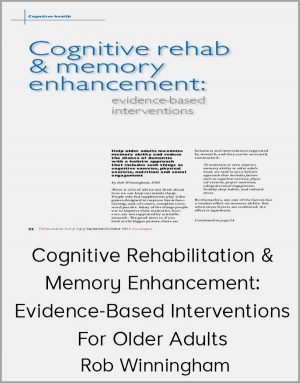




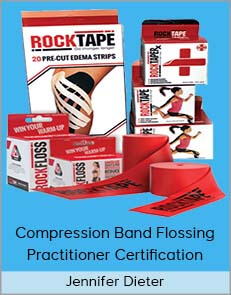
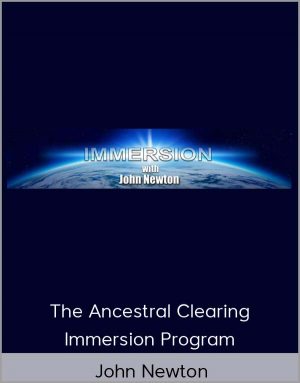
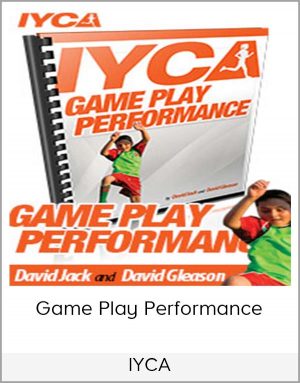
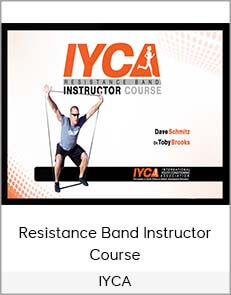
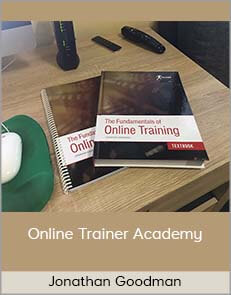
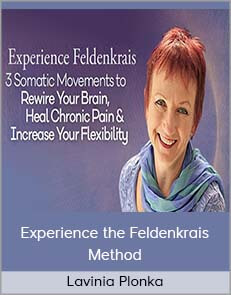

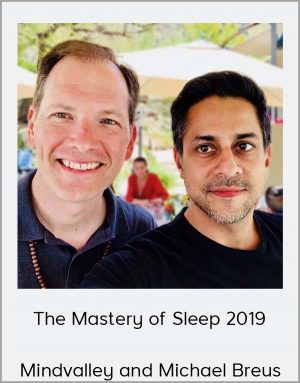

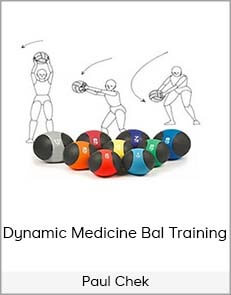
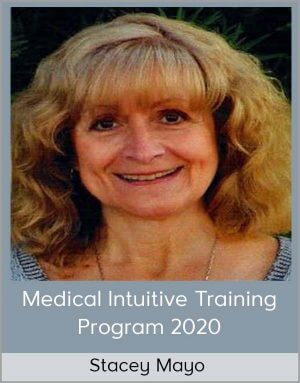
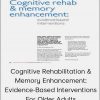
Reviews
There are no reviews yet.